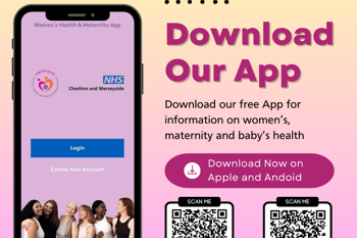Millions risk poorer health outcomes by skipping routine sight test.
This year's National Eye Health Week (NEHW) will take place from 23-29 September 2024, promoting the importance of good eye health and the need for regular eye tests for all.

Routine eye tests are essential health checks for the prevention of poor health. In addition to identifying problems with eyesight they can also detect a range of other ailments including high blood pressure (hypertension), raised cholesterol, heart disease, brain tumours and risk of stroke.
Poor vision is linked to numerous chronic and life-limiting conditions. A new study from Johns Hopkins University reveals up to one in five dementia cases are directly linked to eyesight issues.
Even a relatively minor reduction in vision (6/12 – half way down an optometrist’s letter chart) is associated with a significant reduction in quality of life and increased risk of depression (3xrisk), falls (double risk) and early death (double risk).
David Cartwright, optometrist and chair of Eye Health UK urges everyone who hasn’t had an eye test in the last two years to book one and explains: “Sight-threatening eye disease and conditions like hypertension can present with no, or few, noticeable symptoms. If caught early though they can be treated, or successfully managed, before they become a problem.”
David continues: High-street optometrists play a crucial role in improving health opportunities for all. As well as caring for the nation’s eye health and preventing avoidable sight loss, optometrists can direct people to get the help they need for a wide-range of illnesses, including the 400,000 adults in the UK estimated to be living with undiagnosed heart failure and 88,000 people living with undetected brain tumours.”
Read Hugo’s story for a powerful account of how an eye examination led to the diagnosis and successful treatment of his brain tumour.
People from low-income households, men, and people from minority ethnic backgrounds were most likely to have skipped a recent eye test, whilst 2.5 million over 65s admit they haven’t had their eyes checked in the last two years, as recommended.
Sight tests are free on the NHS for more than 30 million Brits including children, over 60s and those on income-related benefits.
Free NHS eye tests and optical vouchers
Find out if you're entitled to a free NHS sight test or an optical voucher to reduce the cost of glasses or contact lenses. Free NHS eye tests and optical vouchers.
Eye Health UK’s research also highlights the impact poor eye health is having on our day-to-day lives. Around half (49%) of adults in the UK say that the quality of their vision affects their ability to do, or enjoy, daily activities like household chores, driving, reading and hobbies.
As well as having regular eye tests, once every two years, unless advised otherwise by your optometrist, there are a number of other ways we can protect, or improve, our sight.
Lifestyle habits have a significant impact on eye health regardless of genetic predisposition. Your diet, weight, activity levels and alcohol consumption can all affect your eye health.
Protecting your eyes from the sun’s UV rays and not smoking will help keep your eyes and vision healthy.
Multiple studies also show spending two hours+ a day outdoors can reduce the risk of myopia (short-sightedness), even if there is a family history of the condition.
Eye Health Calculator
Did you know 50% of sight loss is avoidable? Are you putting your eyes at risk?
Answer these quick questions for find out if you could be doing more to keep your eyes and vision healthy.
Explore the Vision Matters website for helpful advice and information on caring for your eyes.
Healthwatch eye care research.
We want local people to share their experiences of eye care. Healthwatch will use your feedback to improve eye care services in the local community.
Take part in our confidential eye care survey today. Open until the 29th of September 2024.


